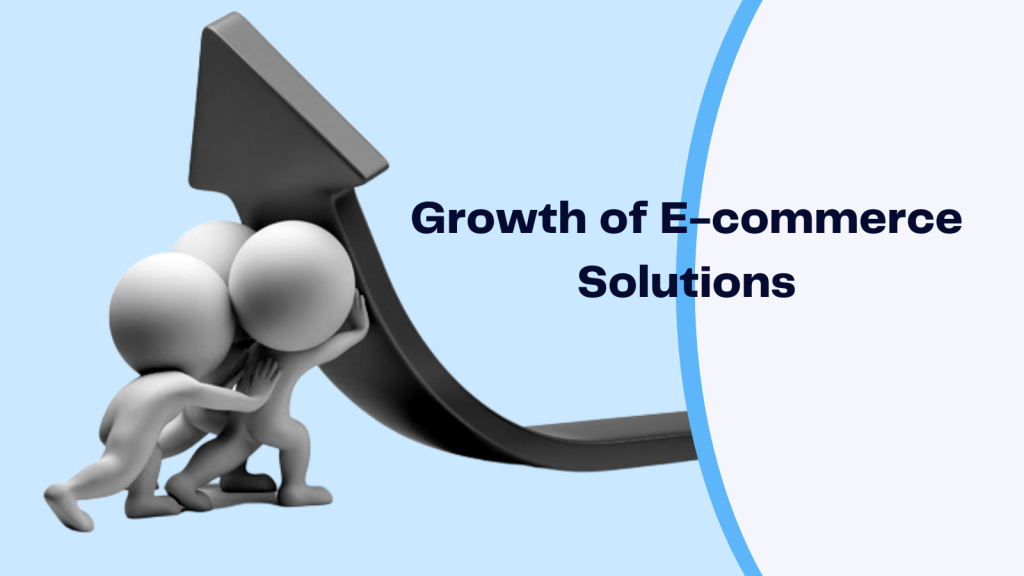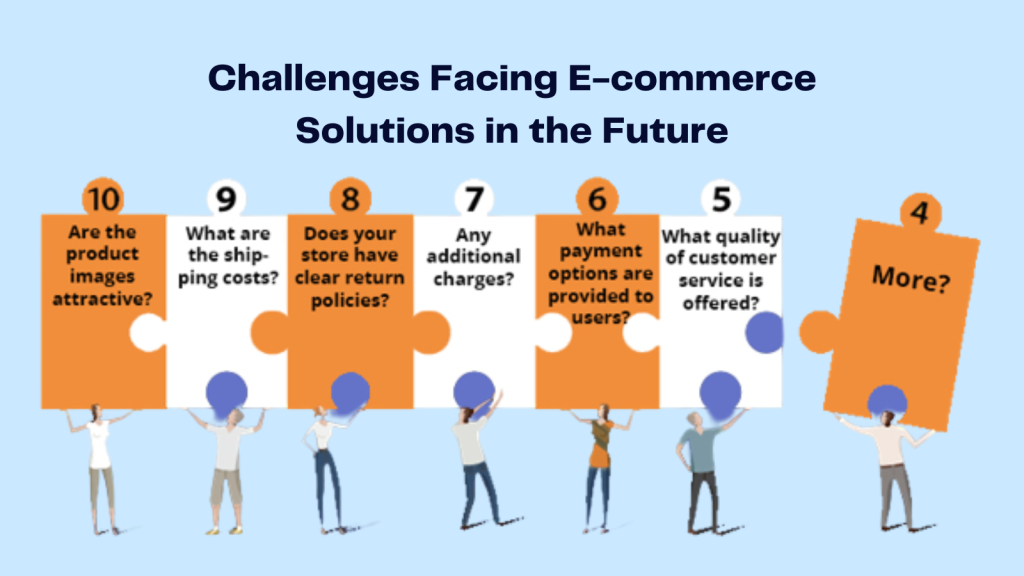The future of e-commerce solutions in the retail industry
The retail industry has seen a dramatic shift towards e-commerce solutions in recent years. In the wake of the COVID-19 pandemic, this trend has accelerated even further, as more consumers are shopping online rather than in physical stores. As we look to the future of the retail industry, it's clear that e-commerce solutions will continue to play a critical role in the success of businesses. In this blog post, we'll explore the future of e-commerce solutions in the retail industry, including emerging trends, technological advancements, and potential challenges.
The Growth of E-commerce Solutions
The rise of e-commerce solutions has been steadily increasing in the retail industry over the past decade. According to eMarketer, e-commerce sales are expected to reach $4.9 trillion by 2025. The COVID-19 pandemic has further accelerated the growth of e-commerce, with many consumers preferring to shop online rather than in physical stores. This has resulted in a significant increase in e-commerce sales, with some estimates suggesting that online sales have increased by up to 30% compared to pre-pandemic levels.

As e-commerce continues to grow, we're also seeing emerging trends that are shaping the future of the industry. One of the most significant trends is the growth of mobile commerce. With more consumers using their smartphones to shop online, retailers are increasingly investing in mobile-friendly e-commerce solutions that offer a seamless user experience. Another emerging trend is the rise of social commerce, with platforms like Instagram and Facebook offering new ways for businesses to reach customers and sell products directly through their platforms.
The Future of E-commerce Solutions
Looking to the future, there are several exciting developments in e-commerce solutions that are set to transform the industry. One of the most significant is the increasing use of artificial intelligence (AI) and machine learning. With AI, e-commerce platforms can provide personalized recommendations to customers based on their browsing and purchase history. This can help businesses to increase sales and improve customer loyalty.

Another important development is the expansion of omnichannel capabilities. Today's consumers expect a seamless shopping experience across all channels, whether they're shopping online, in-store, or via mobile. Retailers are increasingly investing in e-commerce solutions that offer a unified view of customer data, inventory, and sales, enabling them to provide a seamless experience across all channels.
In addition to these trends, we're also seeing the emergence of new technologies that could have a significant impact on e-commerce solutions in the future. For example, blockchain technology has the potential to transform the way that retailers manage their supply chains and payments, offering greater transparency and security. Augmented reality (AR) is another technology that could have a significant impact on e-commerce, allowing customers to visualize products in their own environments before making a purchase.
Challenges Facing E-commerce Solutions in the Future
While the future of e-commerce solutions in the retail industry is exciting, there are also several challenges that businesses will need to overcome. One of the biggest challenges is increased competition. With more businesses investing in e-commerce solutions, retailers will need to find ways to differentiate themselves and offer a unique value proposition to customers.
Another challenge is cybersecurity risks. With more data being collected and stored by e-commerce platforms, businesses will need to ensure that they have robust security measures in place to protect customer data from cyberattacks and data breaches.

Finally, last-mile delivery challenges continue to be a significant issue for e-commerce retailers. With customers expecting fast and reliable delivery, retailers will need to invest in new technologies and processes to optimize their supply chains and ensure timely delivery.
Conclusion
E-commerce solutions are set to play an increasingly important role in the success of the retail industry in the coming years. By investing in emerging technologies and trends, businesses can offer a seamless shopping experience to customers and stay ahead of the competition. However, it's important to be aware of the challenges that come with e-commerce, such as cybersecurity risks and last-mile delivery challenges. By taking a proactive approach to these challenges, businesses can ensure that they continue to provide the best possible experience for their customers.
In conclusion, the future of e-commerce solutions in the retail industry is promising. As we continue to see the growth of e-commerce and the emergence of new technologies and trends, businesses have an opportunity to take advantage of these developments and drive growth. By investing in e-commerce solutions and being aware of the challenges, retailers can stay ahead of the curve and deliver exceptional experiences to their customers. We look forward to seeing how the e-commerce industry will continue to evolve and shape the future of retail.
Comments
Post a Comment